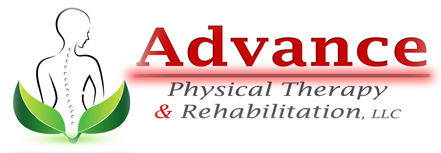
Fibromyalgia and Chronic Pain Discomfort
What is fibromyalgia and chronic pain discomfort?
Fibromyalgia is a type of chronic pain disorder. This disorder is typified by widespread muscle pain and fatigue, and it is often associated with other chronic pain disorders such as inflammatory bowel disease, interstitial cystitis, and endometriosis. While this disease is widespread across the population, those most commonly affected by fibromyalgia are middle-aged women.
What causes fibromyalgia and chronic pain discomfort?
At this time, the causes of fibromyalgia are unknown. A variety of potential causes have been suggested by medical scientists, and it is believed that the onset of fibromyalgia may be spurred by the presence of other diseases like Post traumatic stress disorder (PTSD), arthritis, anxiety, or depression, emotional and physical abuse. People who are more sedentary are also more likely to develop fibromyalgia, but the exact mechanism by which this common disease presents itself and causes pain still eludes researchers worldwide.
What are the symptoms of fibromyalgia and chronic pain discomfort?
Symptoms of fibromyalgia include wide spread muscle and joint pain, fatigue and stiffness, sleeping difficulties, difficulty with memory and concentration, headaches, swelling, numbness or tingling in the arms and legs, irritable bowel syndrome, depression, anxiety, painful menstrual cramps and urinating.
How is fibromyalgia and chronic pain discomfort diagnosed?
Since the cause of fibromyalgia is unknown, it’s hard to test for this disease. It doesn’t show up in blood work, and it can’t be identified with an X-ray or MRI scan. The only way to diagnose fibromyalgia is by its symptoms, which do follow a general pattern. These symptoms include extreme sensitivity, fitness, fatigue, poor sleep quality, and cognitive issues.
How is fibromyalgia and chronic pain discomfort treated?
There are a variety of prescription drugs available that treat fibromyalgia, but most of these drugs have significant side effects that shouldn’t be overlooked. Therefore, many people who suffer from fibromyalgia try alternative treatments such as acupuncture, biofeedback, or massage. In addition, physical therapy treatment have been shown to provide relief from the symptoms of fibromyalgia. These techniques include application of Tens, ice and heat packs, gentle stretching, postural training, self management skills, relaxation techniques, deep tissue massage, pain relief exercises, low impact aerobic conditioning. Our therapists are also skilled in the Neuro Emotional Technique which uses the mind and body connection to help improve physical conditions using a methodology of finding and removing neurological imbalances related to the physiology of unresolved stress.


